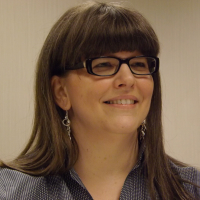
Morris “Moshe” Eisenstadt was born in Brooklyn in 1914; he immigrated to Israel late in life, and volunteered for many years at a hospital in a suburb of Tel Aviv. Eisenstadt was sitting on a park bench reading a book when Ibrahim Salem Ali al-Rai attacked and killed him with an axe in 1994. He was 79 years old.
Isaac Rotenberg was born in Poland in 1927. In the course of the Holocaust he was sent to the Sobibor death camp, but managed to escape in 1943 when Sobibor’s inmates rose up against the Nazis. Rotenberg ultimately fought the German army with the Partisans and, after arriving in Israel, worked in construction. He was on his knees repairing a floor when Salem Ali Atiyeh Abu-Musa and another assailant attacked and killed him with axes in 1994. He was 67.
Annie Ley came from France as a tourist in 1991; Mohammed Ahmed Khaled Asakreh stabbed her to death in Bethlehem, reportedly as she ate in the restaurant at which he worked. Ley was 64. Her murderer, along with al-Rai, Abu-Musa, and 23 other prisoners were released from prison by Israel earlier this week, as a good will gesture to its Palestinian negotiating partners.Each of these attacks happened when I lived in Israel, and many others as well. I wasn’t able to fully grasp the horror at the time, and I’m not able to do so now. I don’t understand what it takes to pick up an axe and murder an old man on a park bench, any more than I understand what it takes to wrap oneself in explosives and rip a crowded bus to bloody shreds.
I understand that this is a war. When soldiers are killed, I mourn, but at least I understand the mechanism at hand: We kill their combatants, they kill ours. Parents remember nothing but chubby cheeks and expressions of love; enemies remember nothing but the other side’s willingness to kill me and mine.
I also understand that me and mine have killed a wildly disproportionate number of them and theirs, many of them non-combatants, at least a third of them minors. Dr. Izzeldin Abuelaish can tell you about the three daughters and a niece he lost when an Israeli tank targeted his Gaza home during Operation Cast Lead; a shell ripped through a wall: “Schoolbooks, dolls, running shoes, and pieces of wood were splintered in a heap…. There was brain matter on the ceiling.” (And don’t tell me those deaths were “unintentional”—look Dr. Abuelaish in the eye, and tell him).
I believe that human beings can only make peace with their enemies. I believe that Israelis and Palestinians will have to forgive, or at least look past, terrible acts and tremendous loss if we are ever to stop the cycle of violence. I believe that the release of terrorists who murdered wholly innocent people was the right thing to do, if it will genuinely bring us closer to the possibility of a lasting peace.
Israelis often fail to understand the importance of the issue. The Palestinian prisoner population is massive, and not all are held with as much justification as those who murder Holocaust survivors and French tourists. Israel has long used the collective and individual fates of these men (and a handful of women) as a bargaining chip, and it’s doing so again—not meting out justice, but rather issuing open-ended punishments unless and until the state decides it’s in its own best interest to do something else. Israelis tend to underestimate the resonance of all this for the Palestinian people; it might be worthwhile to consider how much effort we put into returning the bones of fallen soldiers to our borders. Many in the Arab nations see those soldiers in no better light than we see the Palestinians released on Wednesday—one can argue with that perception, but arguing won’t change the fact.
And, for all that—for all that I believe the prisoner release was justifiable and smart—I do not believe that we are free to dismiss what those men did. I do not believe that we are free to ignore any of the humanity that has spilled on the ground as we have fought, and fought, and fought, using each other’s bodies as the tools by which to achieve our various ends.
Morris Eisenstadt, Isaac Rotenberg, and Annie Ley, and all those like them, did not deserve to die in abject terror as murderous hands descended. They deserved to reach the end of their days in peace and comfort, surrounded by love and goodness. No matter what John Kerry achieves, the reality of those deaths cannot be reversed.
It was right to release the prisoners. And it is right to never forget what they cost us.
A note about names and biographical information: Much of the published information regarding the prisoner release is at least slightly inaccurate—many sources have misspelled names, and at least one Israeli outlet identified Morris Eisenstadt as “a soldier.” In an effort to be as accurate as possible, I have leaned on and cross-referenced Israeli governmental sources for event details, Haaretz for the English transliteration of Arabic names, and a variety of English-language sources for the English spelling of victims’ names. I remain unsure as to whether Eisenstadt went by “Morris” or “Moshe,” so I have included both.




